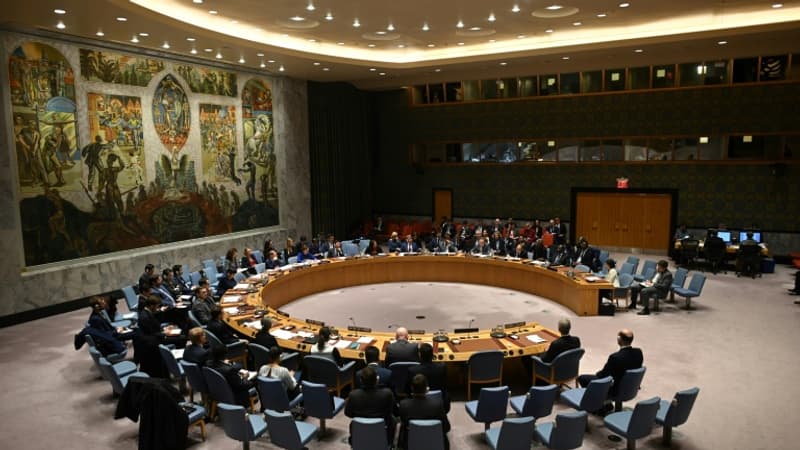“The right to veto does not mean the right to kill,” Volodymyr Zelensky said last April, calling for Russia to be excluded from the UN Security Council. One request remained a dead letter, but was reiterated on Monday by the voice of Dmitri Kouleba, Ukraine’s Foreign Minister.
“Ukraine calls on UN member states (…) to deprive the Russian Federation of its status as a permanent member of the UN Security Council and to exclude it from the UN as a whole,” it said in a statement. .
However, this request has almost no chance of success. In question: the seat that Moscow occupies in the Security Council and, consequently, its veto right that makes it unbreakable.
An “illegal” permanent seat
Last April, Ukrainian officials invoked “war crimes” committed by the Russian military in the town of Boucha to expel Russia from the Security Council. While this first request was unsuccessful, they are now trying to win their case through the law.
According to Dmitri Kouleba, Russia “illegally occupies the USSR’s seat in the UN Security Council” since 1991.
The minister refers here to the Alma-Ata agreements, signed when the Soviet Union divided into fifteen new countries. At that time, the former Soviet republics agreed that the Russian Federation would replace the USSR at the UN, in a logic of continuity.
In the context of the Russian invasion of Ukraine, the kyiv authorities argue that this transition was not made in the rules and that, therefore, Russia has no place in the Security Council.
A widely used right of veto
Beyond this technical question of the transition of the UN seat that the USSR occupied, there is no procedure for the departure or exclusion of a permanent member of the Security Council.
The executive body of the UN, the latter was created at the end of World War II and is made up of the victors of the conflict: China, the United States, France, the United Kingdom and Russia. Ten non-permanent members elected for two years are also represented.
The five permanent members have the right to veto, formulated in article 27 of the organic charter, which establishes that decisions are made “by the affirmative vote of nine of its members, which includes the votes of all permanent members.” In short, any decision of the Security Council is rejected when a permanent member opposes it.
Since the creation of the UN, the USSR and then Russia have used most of the vetoes, particularly recently on resolutions relating to Syria. “The right of veto should be the exception, but it is becoming the rule,” lamented Charles Michel, president of the European Council, last September.
Russian backing to exclude Russia
On September 30, Russia had effectively imposed its veto as a member of the Security Council, thereby rejecting an amendment making recent Russian annexations of Ukrainian territory “illegal” and calling them an “attempt to modify internationally recognized borders.” “.
How can Russia be condemned if it still occupies a permanent seat on the Security Council, which is credited with “primary responsibility for the maintenance of international peace and security”?
According to the United Nations Charter, “if any member of the Organization persistently violates the principles set forth in this Charter, they may be expelled from the Organization by the General Assembly on the recommendation of the Security Council.” However, this does not concern the members of the latter, around which the entire foundation of the UN has been built.
In fact, the names of the five permanent members are inscribed on the charter and, in fact, to change them, it would be necessary to modify this founding text. Only here again… We need the approval of all members, including Russia itself.
The only solution for a member to leave the Security Council would be for him to withdraw on his own. An unthinkable option since with this right of veto Russia notably avoids a referral from the Security Council to the International Criminal Court for the “war crimes” of which it is accused or even a possible dispatch of blue helmets.
Source: BFM TV


